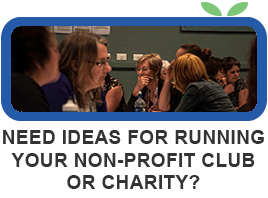Last updated October 12, 2018
There are two topics in the world that most people feel a little uncomfortable talking about: Death and Money. It’s no surprise then that ‘Bequest Giving’ can be a difficult conversation for non-profits to instigate, but it doesn’t have to be that way. If you’ve ever considered bequests as a way of raising funds for your organisation, there are a few things you should know before you start the conversation.
Why do people leave bequests?
People leave bequests for all sorts of reasons, but in all cases they are inspired by the difference your organisation makes in the community and believe that their donation will contribute to the impact you make.
Some donors leave bequests as a way of honouring or memorialising a loved one who has benefited from, or been affected by your organisation. Others do so out of gratitude for the support you have provided, and some because it gives them a sense of value or belonging. Whatever the case, donors see their contribution as a way of supporting your cause into the future.
Who makes bequests?
Bequests are rarely made by wealthy strangers; instead they are given by long time supporters who have had some first-hand experience with your organisation. They may have personally benefited from your support or watched a family member experience your services. It is likely they have made small but regular donations to your organisation over many years – either financially or as a volunteer or board member. While they may have never made a major donation, their gifts will have been consistent over time.
What do bequest donors want to know before giving?
Believing in your mission is one thing, but before someone leaves a bequest they want to know that your organisation will use their donation wisely. They must trust that your organisation has good governance, and that you will continue to provide services and support for a long time to come.
Bequest donors also need to know that their gift will be truly appreciated. While not all donors want or expect the same level of acknowledgement, they do want to be appreciated and remembered.
PREPARING FOR BEQUESTS
Before you go out and ask for bequests, you need to do some groundwork to give yourself the best chance of success. In preparing for bequests, make sure you:
1. Provide Quality Service
Bequests are made when people are genuinely grateful that your organisation exists and that can only happen if you deliver exceptional service and support. Take a hard look at your organisation and honestly assess how well you are fulfilling your mission. People do not make bequests to mediocre organisations that have a limited impact in their community.
2. Appreciate Your Donors
People give to your organisation because they believe in your mission and the people delivering it. No matter how big or small the donation, it is their commitment to your cause that will ultimately lead to a bequest. Be genuinely grateful for donations of any size, and make sure every donor feels acknowledged and appreciated each time they give.
3. Manage Your Finances Well
Before making a bequest, people want to know that their money will be managed well and their contribution will be used effectively. They also want to know that the organisation is financially sustainable and will be around for the long haul. Operating with financial transparency gives potential donors faith you can manage your finances well, so always be upfront and have an open-book policy regarding your accounts.
4. Lead By Example
If you are going to ask others to make a bequest, it is important that those within your organisation lead by example. It would seem incredibly disingenuous for someone to tout the importance of bequest giving if it is not something they are prepared to do themselves. At the very least, each of your board members should make a bequest to your organisation before expecting anyone else to do the same.
5. Tell Bequest Donor Stories
In each of your newsletters include a story from one of your bequest donors about why they are choosing to make a bequest. Other supporters will undoubtedly see connections to their own experiences, and bequest giving will suddenly appear more relevant to them. You could also include these stories on your website and in a specific brochure about bequest giving.
6. Share the Differences Bequests Make
Let people know how bequests have made a difference to your organisation already. What equipment or facilities have been purchased, what programmes or projects have been supported, and what wouldn’t have happened if not for bequests. Tell these stories whenever and wherever you get the chance.
If you think this article would be useful for your members, you are welcome to use it on your website or in your newsletter. We just ask that you let us know where it is being used, and that you acknowledge our website at the bottom of the article. If you are using the article online, please include a link to our homepage.




